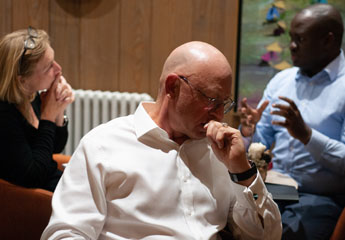
Network and Ecosystem Leadership
Is it possible to organise complex ecosystems to achieve a shared purpose? Indeed is it possible to organise something which by nature is emergent, uncertain and comprised up of autonomous and semi-autonomous parts? Often with powerful agents? Are there clear guidelines that might help?
The questions this chapter seeks to answer.
- What are the general principles of large systems design? For example – does a shared sense of purpose exist or is latent and requires articulation? What are the activities taking place in the system and are they broadly understood?
- What are the characteristics of large systems leadership? Achieving progress among diverse, often conflicting part of a large scale systems requires different skills from those running an enterprise.
This chapter focuses on answering these questions using two specific examples; the global response to COVID 19, the other, an emergent, thriving global ecosystem of volunteers, committed to sustainable living.
Networks operate at different scales of complexity serving all manner of purpose. For example, businesses operate a range of commercial networks serving diverse needs. Behind networks sit organisational structures. Evolutionary trends now see Agile, Platform and the multi dimensional enterprises emulating the principles of Systems Leadership.
Other networks exist for special interests, we know about terrorist networks and hear of the dark net. Social media connect relationship networks, promote and organise specific causes (e.g #MeTo, Extinction Rebellion, BLM, Arab Spring, Occupy Wall Street). The internet has enabled the mushrooming of this online phenomena, while COVID 19 has enforced dependency.
As networks scale in size, stakeholders, functionality and diverse purpose, ecosystems emerge around shared interests. Accompanying scale, comes complexity, uncertainty, disruption, ambiguity, surprise and hyper-connectivity.

Before addressing the two case studies of a pandemic and a voluntary global movement, the following observations are pertinent to the analysis;
- Shared purpose – the need to identify key players / stakeholders, activities, and nodes of development within the associated networks or larger ecosystem. Engaging stakeholders in creating common ground, shared purposes and domains of authority and accountability is necessary. This is a first step, accomplished through a helicopter view of mapping and collective learning.
- Leadership of scaled, social networks and ecosystems is different to leading an accountable goal directed business. Large scale systems leadership requires a different set of meta competencies to galvanize and orchestrate diverse stakeholders.
- Different tools for building collaborative leadership are required to build trust, advocacy and communication flows. Top down command and control is not optimal because of systems complexities. Tools which connect, engage and empower are critical. Understanding there is no master neuron, no one is in control or has complete authority is a fundamental mindset. Therefore leadership maturity and wisdom is fundamental.
- Leveraging complimentary capacities to advance progress is essential and that is done by having clarity of vision and understanding it’s all up to us.
- What’s going on in the System – Understanding the activities and developments within the ecosystem’s different networks is important. By understanding stakeholder’s involvement and contributions, one can create empowering and autonomous conditions. It is important for leadership to know what is going on rather than giving instructions. This is the requisite leadership at scale.
- Leadership can cluster ‘what is going on or needs to be going on’ into one or more existing or emergent domains of work. This allows the ‘chunking’ of activities into semi-autonomous parts. Through understanding the semi-autonomous nature of the parts, empowerment of local decision making, relevant information flows and distributed accountability and authority takes place.
- Complex adaptive systems operate at different speeds and scales of complexity and thus have different design requirements. Activities (work) within the parts of the whole ecosystem can be grouped into Domains, regardless of purpose.
- Understanding the nature of existing or emergent Domains of activities within large complex systems (think COVID 19, UNSDGS, global emergencies) allows for recognizing relevant accountabilities and authorities, information requirements and flow, empowerment and decision-making rights at all the different network levels, from local to strategic.
We call this Scaled Systems Leadership. This chapter seeks to explore network activation, activity chunking and systems leadership competencies.
Let us now turn to COVID19 and The Global Ecovillage Network…
Notes to this Extract
1. An ecosystem refers to multiple networks within an umbrella of shared interests. Networks are regarded as bilateral cooperation while ecosystems are multilateral – ie will work with anyone in the ecosystem.
2. Andrew will be presenting a series of Masterclass sessions with the Singapore Institute of Management in 2021 and Requisite (as required by the nature of things) Leadership of Scaled Systems will be on the topics.
3. My thanks to Reos Partners for the invitation to their workshop in Geneva at the UN Innovation Lab in 2018, to David Nabarro and Peter Atkinson, for their input at the 4SD lab in France in 2018. Thanks to the GEN ecosystem (fellow trustees and network members), for gently showing me the real complexities/ challenges of consensus leadership. Also thanks to Gillian Stamp for taking EJ’s work from hard physics of design into the nuanced and messy world, now just being discovered in OD. All this has really formative in thinking about fractals of work activity at scale.



